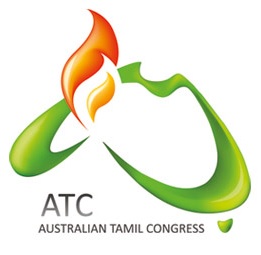 For immediate release
For immediate release
18 June 2020
Militarisation of governance, demographic change and the future of democracy in Sri Lanka
Sri Lanka’s President Gotabaya Rajapaksa announced an all-Sinhala Task Force on Archeological Heritage Management on June 2, which includes Buddhist monks, military officers and the head of the Derana media network, to “preserve the historical heritage of Sri Lanka” in the island’s Eastern Province. The announcement, made through a Gazette No. 2178/17, comes after the president met with the Buddhist Maha Sanga to discuss Buddhist sites in the East. The Task Force h as several Sinhala Buddhist monks, but no representative of Hinduism or Islam, significant in a region where over 70% of the population is Hindu and Muslim. The Task Force is headed by the Secretary to the Ministry of Defence, a retired Major General, Kamal Gunaratne, who is accused of war crimes.
as several Sinhala Buddhist monks, but no representative of Hinduism or Islam, significant in a region where over 70% of the population is Hindu and Muslim. The Task Force is headed by the Secretary to the Ministry of Defence, a retired Major General, Kamal Gunaratne, who is accused of war crimes.
The Task Force is being asked to “identify sites of archaeological importance in the Eastern Province”. The Sri Lankan military sent a high-leve l delegation to the Eastern Province last month, including the war crimes-accused army head and defence secretary, where they pledged to establish a naval sub-unit to protect Buddhist sites. The Eastern Province, which has been claimed by the Tamil people as being historically inhabited by Tamils and was recognized as such in the 1987 Indo-Lanka Accord, has come under decades of intense Sinhalisation and colonisation from state-sponsored settlement schemes.
l delegation to the Eastern Province last month, including the war crimes-accused army head and defence secretary, where they pledged to establish a naval sub-unit to protect Buddhist sites. The Eastern Province, which has been claimed by the Tamil people as being historically inhabited by Tamils and was recognized as such in the 1987 Indo-Lanka Accord, has come under decades of intense Sinhalisation and colonisation from state-sponsored settlement schemes.
 In recent years, the state has used the guise of ‘archaeology’ to take over vast areas of land in the North-East and to mark them as ‘Buddhist sites’. The US State Department’s International Religious Freedom Report for 2016 said that the construction of such sites and Buddhist statues in non-Buddhist areas in the North-East, despite objections from locals, left civil society with the perception of “Buddhist Sinhalese religious and cultural imperialism”.
In recent years, the state has used the guise of ‘archaeology’ to take over vast areas of land in the North-East and to mark them as ‘Buddhist sites’. The US State Department’s International Religious Freedom Report for 2016 said that the construction of such sites and Buddhist statues in non-Buddhist areas in the North-East, despite objections from locals, left civil society with the perception of “Buddhist Sinhalese religious and cultural imperialism”.
Tamils have also voiced fears about further appropriation of land by the state through the Task Force, as the gazette announced the body would be able to “identify the extent of land that should be allocated for such archaeological sites and take necessary measures to allocate them properly and legally”. “The Presidential Task Force on Archaeological Heritage Management in the Eastern Province may issue instructions or request that all Government Officers and other persons requesting assistance in the provision of services comply with such instructions,” the gazette concluded.
 On June 2, 2020, Sri Lankan President Gotabaya Rajapaksa also issued another extraordinary gazette establishing a 13-member “Presidential Task Force to build a Secure Country, Disciplined, Virtuous and Lawful Society.” The Task Force is composed entirely of military, intelligence and police officials. It is also to be headed by Defence Secretary, Retired Major General Kamal Gunaratne.
On June 2, 2020, Sri Lankan President Gotabaya Rajapaksa also issued another extraordinary gazette establishing a 13-member “Presidential Task Force to build a Secure Country, Disciplined, Virtuous and Lawful Society.” The Task Force is composed entirely of military, intelligence and police officials. It is also to be headed by Defence Secretary, Retired Major General Kamal Gunaratne.
“This Presidential Task Force constitutes another act of over-reach by a government seeking to take advantage of the COVID-19 pandemic to further expand its powers,” said Frederick Rawski, International Commission of Jurists, Regional Director for Asia and the Pacific. “Its mandate is overbroad, and it empowers its military and police membership – including alleged war criminals – at a time when strong, independent, civilian-led  policy-making is what is needed.”
policy-making is what is needed.”
The ICJ raised concerns that the task force has not been established on proper legal foundations. It is apparently pursuant to the broad, but ill-defined presidential powers under Article 33 of the Constitution.
The ICJ said that the second task force could effectively usurp the powers and functions normally reserved for civilian authorities, under rule of law principles and as established by the Constitution and relevant enabling legislations.